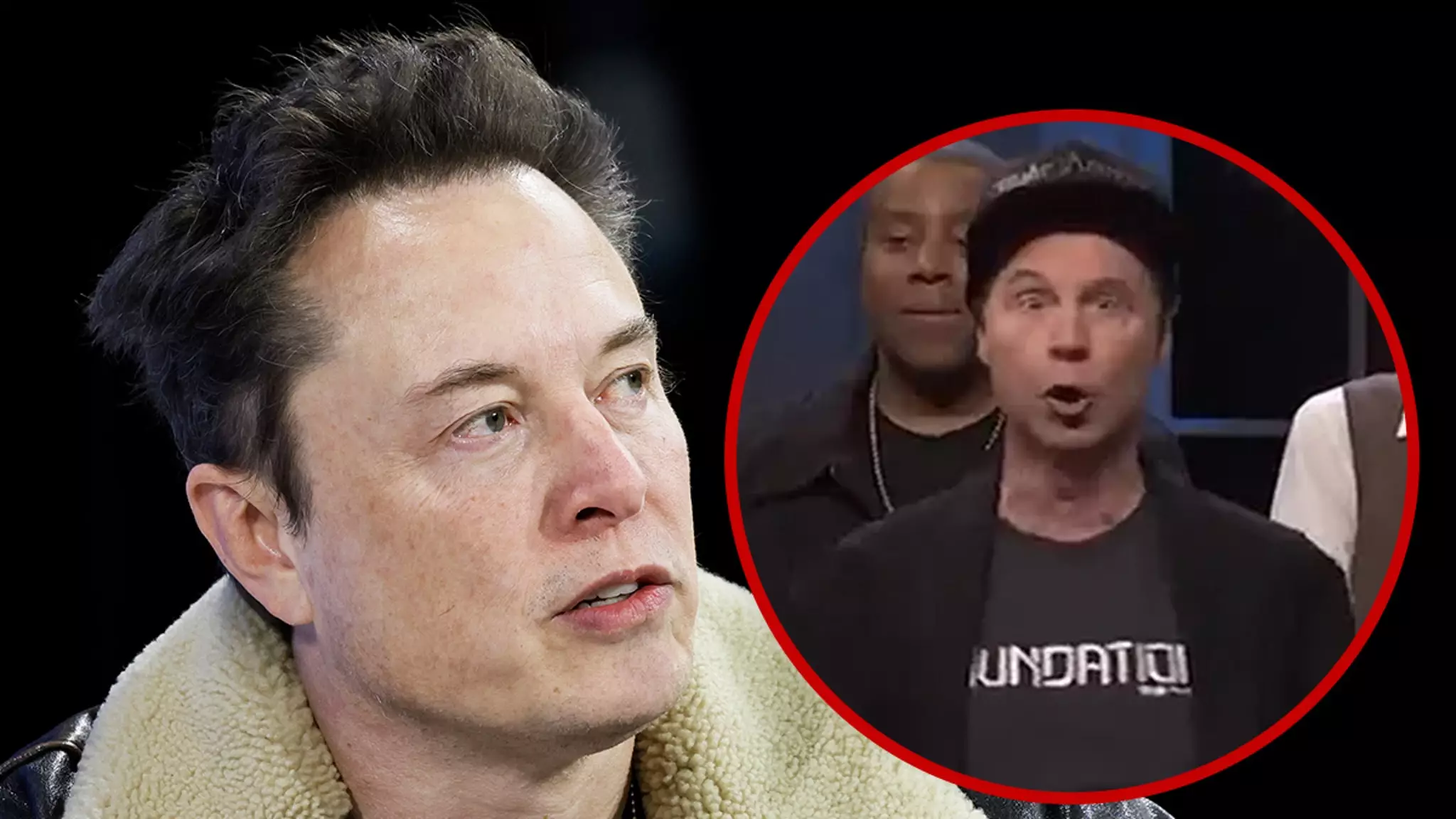In an electrifying episode of “Saturday Night Live” (SNL), a comedic showdown erupted over political satire, featuring none other than the tech mogul Elon Musk. When Dana Carvey donned the persona of Musk, the fallout was immediate, sparking reactions that highlighted a larger cultural rift intertwined with humor, politics, and celebrity influence.
Musk did not hold back in expressing his displeasure with the show, publicly calling SNL cast members “sore losers.” This indicates that the billionaire is not just an aloof figure in the comedy realm; he’s engaged with how he is represented in popular culture. His critique suggests a disdain for the comedic portrayal of his support for Donald Trump, particularly in a time when political partisanship runs deep. Instead of laughing it off, Musk appeared to relish in the absurdity, pointing out the palpable animosity from SNL regarding Trump’s electoral victory—a clear reflection of Musk’s allegiance to the former president.
Comedy, especially in the realm of political satire, has always served as a reflection of societal sentiments. The SNL skit reinforces how entertainment culture is often laced with critiques of power structures, ideally designed to prompt introspection and dialogue among viewers. Musk’s involvement in politics—supporting Trump—adds another layer of complexity to this narrative. When the SNL cast channeled their grievances through humor, they barely scratched the surface of a deeper commentary on the political landscape, which Musk unabashedly supports. This divergence raises questions: Can comedians create satire without facing backlash from those they impersonate? Musk’s reaction suggests that he believes the answer is a resounding “no.”
Musk’s penchant for direct engagement with social media audiences indicates that he will not shy away from rebuttals in the future. With the promise of more impersonations and perhaps more biting commentary aimed at SNL, one can expect this rivalry to flare up over the coming years. As Musk sees himself closely tied to the political machinery, it is likely that he will consistently defend his stances through personal commentary while using his platform to counter negative portrayals.
The intersection of celebrity, politics, and comedy cannot be overstated. Musk’s ability to command public attention means that his reactions have implications beyond simple entertainment. His influence permeates conversations around the acceptance—or rejection—of political satire in modern America. As shown during the skit, the juxtaposition between humor and earnest political discourse ultimately cultivates a collective dialogue among audiences regarding not just Musk’s persona but also the broader political context.
In this tableau of modern comedy and celebrity influence, the interaction between Musk and the SNL cast might just be a glimpse into an evolving landscape of political engagement. As comedians seek to satirize, and public figures respond vehemently, the stage is set for an ongoing cultural commentary that converses with democracy, celebrity, and humor at an unprecedented level. Musk might be bracing for backlash, but he has proven that he is not merely a target—he is a formidable player in this unfolding drama.

